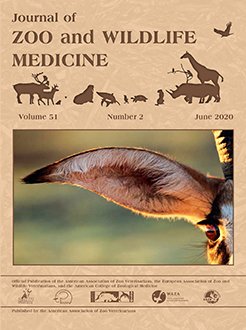Reptarenaviruses infect a variety of boid and pythonid snake species worldwide and have been shown to be the cause of inclusion body disease (IBD). Little is known about the correlations between virus infection and clinical disease, as well as the effects of viral infection on the immune system and the blood protein fractions. The goal of this study was to examine the differences in the plasma protein fractions in reptarenavirus reverse transcription polymerase chain reaction (RT-PCR)-negative and -positive tested snakes with and without clinical signs of disease. Blood from a total of 111 boa constrictors (Boa constrictor) was evaluated. Reverse transcription PCRs and H&E staining for inclusion bodies were carried out on each sample for the detection of reptarenavirus, and the plasma protein fractions were evaluated by capillary zone electrophoresis (CZE). Thirty four of the 111 evaluated snakes were positive by RT-PCR and 19 of the 34 showed clinical signs of disease. In comparison with IBD-negative healthy boa constrictors, the positive snakes with clinical signs had significantly lower albumin levels (P = 0.0052), lower A: G ratios (P = 0.0037), and lower α-globulin levels (P = 0.0073), while their γ-globulin levels were significantly higher (P = 0.0004). In the same comparison, clinically healthy arenavirus-positive boas showed only significantly lower α-globulin (P = 0.0124) and higher γ-globulin levels (P = 0.0394). The results of the present study indicate that reptarenavirus infection may influence plasma protein fractions in boa constrictors.
How to translate text using browser tools
12 June 2020
PROTEIN ELECTROPHORESIS OF PLASMA SAMPLES FROM BOA CONSTRICTORS WITH AND WITHOUT REPTARENAVIRUS INFECTION
Christoph Leineweber,
Jules Simard,
Ekaterina Kolesnik,
Tom Hellebuyck,
Rachel E. Marschang
ACCESS THE FULL ARTICLE
albumin
capillary zone electrophoresis
globulin
inclusion body disease
RT-PCR





